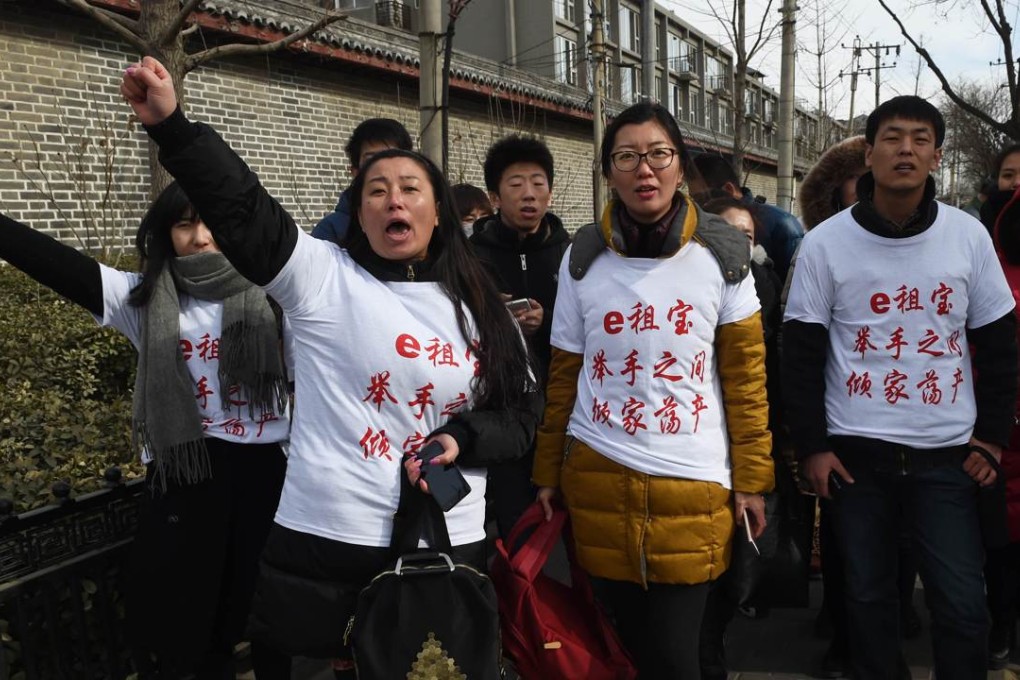Chinese police on alert for unrest from looming rash of P2P failures
Security authorities warn of possible defaults mid-year in the online private lending market as short-term loans fall due, sources say

Mainland police are preparing to contain the risks from runaway online private lending as authorities anticipate more scandals and defaults in the middle of this year.
Police have been ordered to step up efforts to shut down illegal online lending platforms, closely monitor legal operations and act promptly against suspected criminals, according to two Shanghai police officers.
During a teleconference hosted by the Ministry of Public Security last month, senior officials said illegal fundraising schemes were likely to result in a slew of defaults in June as payments fell due.
Police branches were warned to be on alert for social unrest, according to one police source who attended the event.
Lots of debt and wealth management products sold online are likely to expire in the middle of this year. Alarm bells are ringing now
Liquidity is normally tight midyear as commercial banks compile their interim reports and force clients to repay short-term loans.